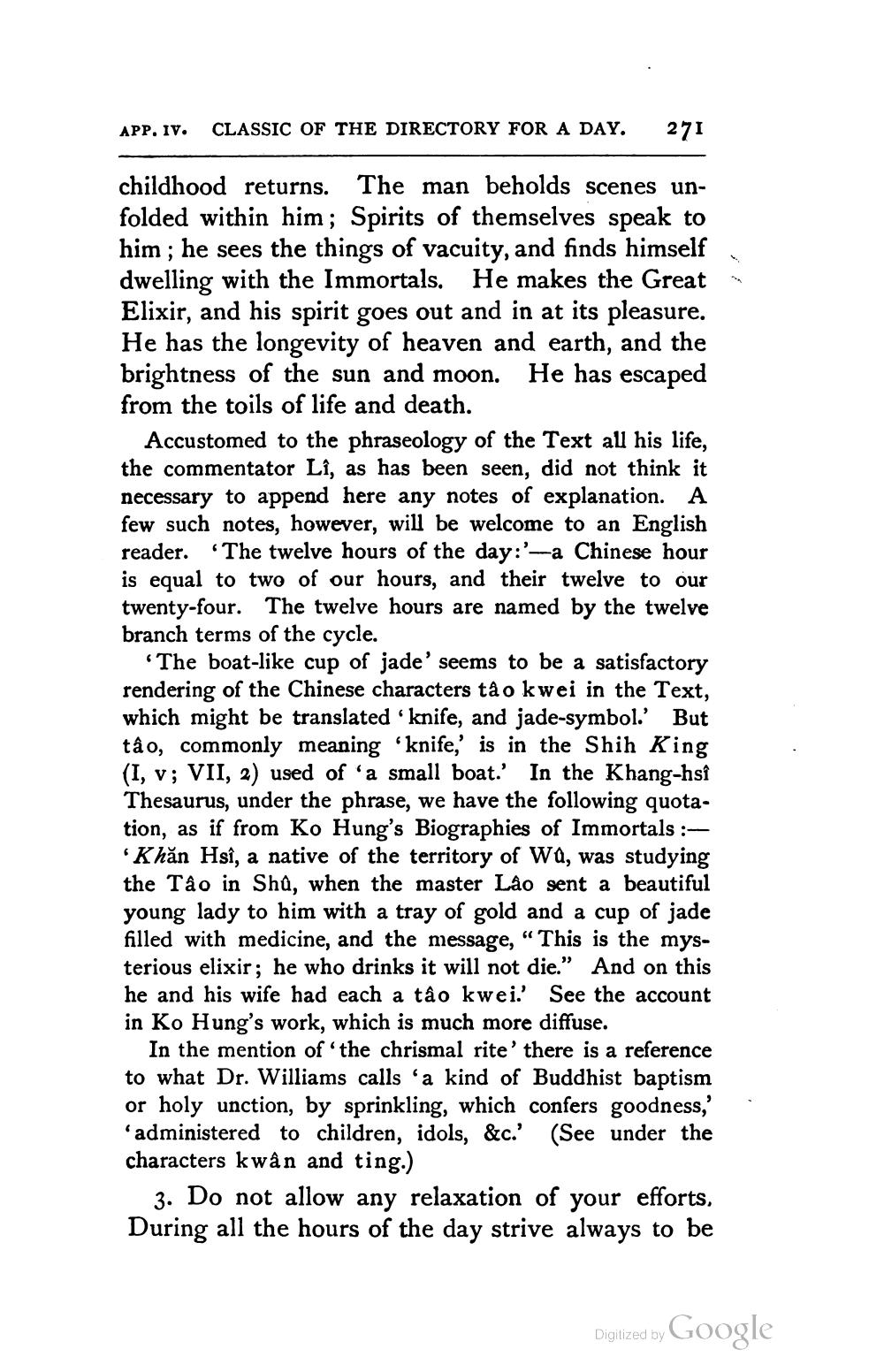________________
APP. IV. CLASSIC OF THE DIRECTORY FOR A DAY. 271
childhood returns. The man beholds scenes unfolded within him; Spirits of themselves speak to him; he sees the things of vacuity, and finds himself dwelling with the Immortals. He makes the Great Elixir, and his spirit goes out and in at its pleasure. He has the longevity of heaven and earth, and the brightness of the sun and moon. He has escaped from the toils of life and death.
Accustomed to the phraseology of the Text all his life, the commentator Lî, as has been seen, did not think it necessary to append here any notes of explanation. A few such notes, however, will be welcome to an English reader. The twelve hours of the day:'-a Chinese hour is equal to two of our hours, and their twelve to our twenty-four. The twelve hours are named by the twelve branch terms of the cycle.
'The boat-like cup of jade' seems to be a satisfactory rendering of the Chinese characters tão kwei in the Text, which might be translated 'knife, and jade-symbol.' But tâo, commonly meaning 'knife,' is in the Shih King (I, v; VII, 2) used of 'a small boat.' In the Khang-hsî Thesaurus, under the phrase, we have the following quotation, as if from Ko Hung's Biographies of Immortals :'Khăn Hsi, a native of the territory of Wû, was studying the Tâo in Shû, when the master Lão sent a beautiful young lady to him with a tray of gold and a cup of jade filled with medicine, and the message, "This is the mysterious elixir; he who drinks it will not die." And on this he and his wife had each a tâo kwei.' See the account in Ko Hung's work, which is much more diffuse.
In the mention of 'the chrismal rite' there is a reference to what Dr. Williams calls 'a kind of Buddhist baptism or holy unction, by sprinkling, which confers goodness,' 'administered to children, idols, &c.' (See under the characters kwân and ting.)
3. Do not allow any relaxation of your efforts. During all the hours of the day strive always to be
Digitized by Google




